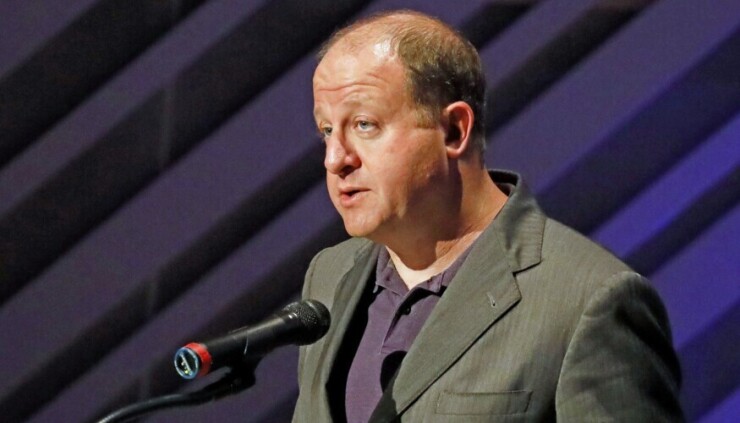The Colorado Legislature wrapped up a special session Thursday with the passage of a bill to circumvent property tax cut initiatives on the Nov. 5 ballot that troubled the state’s municipal bond market.
Gov. Jared Polis called the results of the special session he ordered “an important step for Colorado to end the property tax wars.”
Bloomberg News
“I look forward to seeing the risky ballot measures pulled down and signing this legislation into law so small businesses and homeowners can keep more of their hard-earned money,” he said in a statement.
Initiative 50,
They raised alarms about a lack of critical details on how it would be implemented if passed by a required 55% of voters. They also warned the measure would
“The bill as currently drafted does meet the dual goals of lowering property taxes for Coloradans while maintaining the protections needed for special district debt that drive housing affordability in the state,” Zach Bishop, head of Piper Sandler’s special district group public finance investment banking, said in an email.
Ann Terry, CEO of the Special District Association of Colorado, which represents metropolitan, fire, health, water, and other districts, said while it was too early to determine the bill’s impact, some districts could be harmed financially.
The special session began Monday with a flurry of bills, including a proposed constitutional amendment for the Nov. 5 ballot that would ensure
HB 1001 expands on $1.3 billion in property tax cuts for 2024 and 2025 expected under Senate Bill 233,
Under HB 1001,
Amid a surge in home values, state lawmakers have been trying to rein in property taxes in the absence of a mechanism to keep them in check. The state’s 1982 Gallagher Amendment, which strived to protect homeowners from rising tax bills,
Business group Colorado Concern, which along with Advance Colorado backed the ballot initiatives, had contended the
